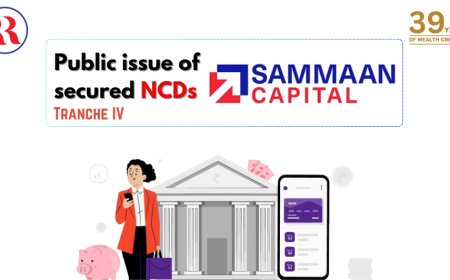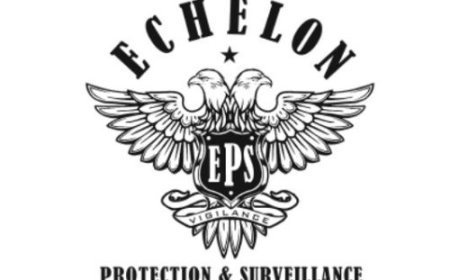How to Get Fcra Registration
How to Get FCRA Registration The Foreign Contribution (Regulation) Act, 2010, commonly referred to as FCRA, is a critical legal framework in India that governs the acceptance and utilization of foreign contributions by non-governmental organizations, associations, and individuals. FCRA registration is mandatory for any entity seeking to receive funds or donations from foreign sources for social, c
How to Get FCRA Registration
The Foreign Contribution (Regulation) Act, 2010, commonly referred to as FCRA, is a critical legal framework in India that governs the acceptance and utilization of foreign contributions by non-governmental organizations, associations, and individuals. FCRA registration is mandatory for any entity seeking to receive funds or donations from foreign sources for social, cultural, educational, religious, or charitable purposes. Without this registration, receiving foreign contributions is illegal and may lead to severe penalties, including the freezing of bank accounts, cancellation of existing registrations, and even criminal prosecution.
For nonprofits, trusts, societies, and Section 8 companies, FCRA registration is not merely a compliance requirement—it is a gateway to international funding, global partnerships, and sustainable development. It signals transparency, accountability, and adherence to national regulatory standards, thereby enhancing credibility among donors, beneficiaries, and stakeholders.
This guide provides a comprehensive, step-by-step roadmap to obtaining FCRA registration. Whether you are a newly established nonprofit or an organization seeking to renew or upgrade your registration, this tutorial covers every critical aspect—from eligibility and documentation to application submission and post-registration obligations. We also include best practices, essential tools, real-world case studies, and answers to frequently asked questions to ensure you navigate the process confidently and efficiently.
Step-by-Step Guide
Step 1: Determine Eligibility
Before initiating the FCRA registration process, verify that your organization meets the eligibility criteria set by the Ministry of Home Affairs (MHA). Only the following entities are eligible to apply:
- Registered trusts
- Registered societies
- Section 8 companies under the Companies Act, 2013
Additionally, the organization must have been operational for at least three years, during which it must have actively undertaken meaningful social welfare activities. This operational history must be substantiated through financial records, activity reports, and project documentation.
Organizations that are political in nature, religious in purpose, or involved in media or propaganda activities are explicitly prohibited from obtaining FCRA registration. Similarly, individuals cannot apply for FCRA registration unless they are acting on behalf of an eligible entity.
Step 2: Obtain Legal Registration
FCRA registration is only available to entities that are already legally registered under Indian law. If your organization is not yet registered, begin by completing the following:
For Trusts: Register under the Indian Trusts Act, 1882, with the local Registrar of Trusts. Submit a trust deed signed by at least two trustees, detailing the objectives, management structure, and governing rules.
For Societies: Register under the Societies Registration Act, 1860, with the Registrar of Societies in your state. Prepare a memorandum of association and rules and regulations, signed by at least seven founding members.
For Section 8 Companies: Apply for incorporation under Section 8 of the Companies Act, 2013, through the Ministry of Corporate Affairs (MCA). This requires drafting a detailed object clause, submitting Form INC-1, and obtaining a license from the Regional Director.
Ensure that your registration documents are current, stamped, and notarized. Keep certified copies of your registration certificate, PAN card, and GST registration ready for submission.
Step 3: Open a Dedicated FCRA Bank Account
One of the most crucial prerequisites for FCRA registration is maintaining a separate bank account exclusively for foreign contributions. This account must be opened in a designated branch of the State Bank of India (SBI) in New Delhi, or any other bank approved by the Reserve Bank of India (RBI) for FCRA transactions.
When opening the account, provide the following:
- Copy of your legal registration certificate
- PAN card of the organization
- Board resolution or governing body resolution authorizing the opening of the FCRA account
- Copy of the trust deed, memorandum of association, or articles of association
Do not commingle foreign contributions with domestic funds. All incoming foreign donations must be routed exclusively through this account. Withdrawals for project expenses must also be processed from this account, with proper documentation maintained.
Step 4: Prepare Required Documents
Compile a complete and accurate set of documents to accompany your FCRA application. Incomplete or inaccurate documentation is the leading cause of application rejection. The mandatory documents include:
- Copy of registration certificate (Trust/Society/Section 8 Company)
- Copy of PAN card
- Copy of GST registration certificate
- Copy of the bank account statement for the FCRA account (first page with account number and IFSC)
- Copy of the organization’s annual reports for the last three years
- Copy of the audited financial statements for the last three years
- Activity report detailing projects undertaken in the last three years, including objectives, outcomes, beneficiaries, and geographical coverage
- Board resolution or governing body resolution authorizing the application for FCRA registration
- Proof of address of the registered office (utility bill, rent agreement, or property tax receipt)
- Details of key functionaries (name, address, designation, and ID proof of the president, secretary, and treasurer)
- Declaration that the organization is not engaged in any prohibited activities under FCRA
- Declaration that the organization has not been previously denied FCRA registration
Ensure all documents are scanned in high resolution (PDF format), with clear text and legible signatures. Do not submit photocopies unless explicitly requested.
Step 5: Register on the FCRA Portal
All FCRA applications must be submitted online through the official portal: https://fcraonline.nic.in.
Create a user account using your organization’s email and mobile number. Once registered, log in and select “New Registration” under the “FCRA Registration” section.
Fill out the online form meticulously. The form is divided into multiple sections:
- Organization details (name, address, registration number, date of registration)
- Details of governing body members
- Objectives of the organization
- Details of the FCRA bank account
- Project details and annual expenditure
- Declaration and undertaking
Upload all required documents in the designated fields. Each document has a specified file size limit (usually 2MB per file). Use PDF format unless otherwise specified. Double-check that all uploads are complete and correctly labeled.
Before submitting, review the entire application for accuracy. Once submitted, the system will generate an acknowledgment number. Retain this number for future reference.
Step 6: Pay the Application Fee
A non-refundable application fee of ₹2,000 is required at the time of submission. Payment can be made online through net banking, credit/debit card, or UPI. Ensure the payment is completed successfully and retain the transaction receipt. The application will not be processed until the fee is paid.
Step 7: Await Processing and Response
After submission, the Ministry of Home Affairs will review your application. The processing time typically ranges from 90 to 180 days, depending on the volume of applications and completeness of documentation.
During this period, the MHA may request additional information or clarification. Monitor your registered email and the FCRA portal regularly for updates. If a deficiency memo is issued, respond promptly with the requested documents within the stipulated timeframe (usually 30 days).
If your application is approved, you will receive an FCRA registration certificate via email and postal mail. The certificate includes your unique FCRA registration number, validity period (usually five years), and conditions of compliance.
If your application is rejected, the MHA will provide a detailed reason. You may reapply after addressing the deficiencies. Reapplications require a fresh fee and complete documentation.
Step 8: Renewal and Compliance
FCRA registration is valid for five years. Six months before expiration, you must apply for renewal through the same portal. Failure to renew on time results in automatic cancellation.
Post-registration compliance includes:
- Filing annual returns (Form FC-3) by September 30 each year
- Submitting audited financial statements along with the return
- Maintaining separate books of account for foreign contributions
- Reporting any changes in governing body members, address, or objectives within 15 days
- Obtaining prior approval for any change in the nature or purpose of foreign contributions
Non-compliance may lead to suspension or cancellation of registration. Maintain meticulous records and consider appointing a compliance officer to oversee annual filings and documentation.
Best Practices
1. Maintain Transparent Financial Records
FCRA compliance hinges on financial transparency. Maintain a separate ledger for all foreign contributions, including the date of receipt, donor name, amount, purpose, and mode of transfer. Reconcile bank statements monthly and ensure every expense is supported by invoices, receipts, and project reports.
2. Conduct Internal Audits
Perform quarterly internal audits to verify that funds are being used strictly for the declared objectives. This not only helps prevent errors but also prepares your organization for external audits by the MHA or independent auditors.
3. Train Your Team on FCRA Guidelines
Ensure that your finance, program, and administrative staff understand FCRA regulations. Conduct annual training sessions on permissible uses of foreign funds, reporting deadlines, and prohibited activities. A well-informed team reduces the risk of unintentional violations.
4. Avoid Prohibited Activities
Do not use foreign contributions for political purposes, religious conversions, media campaigns, or activities that may be interpreted as influencing public opinion or government policy. Even indirect associations with such activities can lead to registration cancellation.
5. Use Only Approved Banks
Never receive foreign contributions through personal accounts, non-FCRA bank accounts, or third-party intermediaries. All funds must flow through your designated FCRA account. Any deviation is a serious violation.
6. Keep Digital and Physical Copies
Store all documents—both digital and physical—in secure locations. Maintain backups in cloud storage with encrypted access. Physical copies should be archived in a fireproof cabinet with access limited to authorized personnel.
7. Monitor Policy Updates
FCRA rules are subject to periodic amendments. Subscribe to official MHA notifications and follow reputable legal blogs or associations such as the Indian NGO Forum or the Centre for Civil Society for updates. Ignorance of the law is not an acceptable defense.
8. Build Relationships with Local Authorities
Establish open communication with the FCRA cell in your state. While applications are processed centrally, local officials can provide guidance on documentation and clarify regional interpretations of the law.
Tools and Resources
Official Resources
- FCRA Online Portal: https://fcraonline.nic.in – The sole platform for applications, renewals, and filings.
- Ministry of Home Affairs (MHA): https://mha.gov.in – Official notifications, circulars, and FCRA guidelines.
- Reserve Bank of India (RBI): https://rbi.org.in – List of authorized banks for FCRA accounts and foreign exchange regulations.
- Ministry of Corporate Affairs (MCA): https://mca.gov.in – For Section 8 company registration and compliance.
Document Templates and Checklists
Download official templates for:
- Board resolution for FCRA application
- Activity report format
- Declaration of compliance
- Annual return Form FC-3
These can be found on the FCRA portal under “Downloads.” Use these templates verbatim to avoid formatting errors.
Accounting Software
Use accounting platforms designed for nonprofits to manage FCRA-compliant bookkeeping:
- TallyPrime – Customizable for nonprofit accounting with multi-currency support.
- QuickBooks Nonprofit – Tracks restricted funds and generates audit-ready reports.
- Zoho Books – Cloud-based, integrates with bank feeds and supports project-wise expense tracking.
Ensure your software can segregate foreign contributions from domestic income and generate reports aligned with FCRA Form FC-3 requirements.
Legal and Compliance Consultants
Engage professionals experienced in FCRA compliance for complex cases. Look for:
- Chartered accountants with nonprofit audit experience
- Legal firms specializing in NGO law
- Consultants registered with the MHA as FCRA advisors
While not mandatory, professional guidance significantly reduces application rejection rates and ensures long-term compliance.
Training and Networking Platforms
- Indian NGO Forum – Offers webinars and workshops on FCRA compliance.
- Civil Society Organisations Network (CSO Network) – Provides policy updates and peer learning forums.
- Centre for Civil Society – Publishes guides and hosts policy dialogues on nonprofit regulation.
Participate in these platforms to stay informed and connect with other organizations navigating similar challenges.
Real Examples
Example 1: Rural Education Trust, Odisha
Rural Education Trust, a society registered in 2015, aimed to provide free education to underprivileged children in remote villages. The organization had been receiving small donations from international alumni and educational foundations but lacked FCRA registration.
After reviewing the guidelines, the trust prepared its application with meticulous documentation: three years of audited accounts, detailed project reports, and a dedicated FCRA account opened at SBI New Delhi. The application was submitted in January 2022. Within 110 days, the registration was approved. The trust now receives funding from a UK-based foundation to expand its digital learning centers. Their strict adherence to record-keeping enabled them to pass a surprise MHA audit in 2023 without any discrepancies.
Example 2: Health for All Foundation, Maharashtra
Health for All Foundation applied for FCRA registration in 2021 but was rejected due to incomplete activity reports. The organization had not documented the number of beneficiaries or the geographical reach of its health camps.
They re-applied in 2022 after revising their reporting system. They began maintaining digital logs of each health camp, including photographs, beneficiary forms, and partner hospital confirmations. They also hired a part-time data officer to compile annual reports. Their second application was approved in 89 days. Today, they manage a $500,000 annual grant from a U.S.-based health NGO.
Example 3: Eco Warriors Society, Karnataka
Eco Warriors Society, registered in 2018, received a large donation from a European environmental group. However, they deposited the funds into their general operating account, violating FCRA rules. When the MHA conducted a routine review, they discovered the commingling of funds and suspended the organization’s registration.
The society immediately opened a dedicated FCRA account, transferred all foreign funds, and submitted a formal explanation along with revised financial records. After a three-month suspension, their registration was reinstated with a warning. This incident underscores the importance of strict financial segregation.
Example 4: Rejection Due to Political Affiliation
A Delhi-based NGO applied for FCRA registration to fund a campaign on climate justice. Their website included statements criticizing government environmental policies. The MHA rejected the application, citing “potential political influence” under Section 3(1)(b) of FCRA.
This case highlights that even well-intentioned advocacy can cross the line if it appears to challenge state authority. Organizations must ensure their activities remain strictly charitable, educational, or humanitarian in nature.
FAQs
Can an individual apply for FCRA registration?
No. Only registered trusts, societies, or Section 8 companies are eligible. Individuals may receive foreign contributions only if acting as authorized representatives of a registered entity.
What happens if I receive foreign funds without FCRA registration?
Receiving foreign contributions without FCRA registration is a criminal offense under Section 11 of the FCRA, 2010. Penalties include imprisonment up to five years, fines, and seizure of assets. Bank accounts may be frozen, and future registration applications may be permanently barred.
Can I use FCRA funds for administrative expenses?
Yes, but only up to 20% of total foreign contributions in a financial year, as per Rule 17 of FCRA Rules, 2011. The remaining 80% must be used directly for project activities. This limit must be clearly disclosed in annual returns.
Is FCRA registration required for donations from Non-Resident Indians (NRIs)?
Yes. Contributions from NRIs are treated as foreign contributions under FCRA if they are received from outside India or through foreign bank accounts. However, donations from NRIs in India using Indian bank accounts are exempt.
How long does FCRA registration last?
FCRA registration is valid for five years from the date of issuance. Renewal must be applied for at least six months before expiry.
Can I change the purpose of my FCRA-funded project after registration?
Yes, but only with prior approval from the MHA. Submit Form FC-4 with a detailed justification and revised budget. Unauthorized changes may result in suspension of registration.
Do I need to file returns even if I did not receive foreign funds in a year?
Yes. All FCRA-registered entities must file Form FC-3 annually, regardless of whether any foreign contributions were received. Failure to file results in suspension.
Can foreign contributions be used to pay salaries?
Yes, provided the salaries are reasonable, directly related to project implementation, and disclosed in the annual return. Salaries for administrative staff must fall within the 20% cap on overheads.
What documents are needed for FCRA renewal?
For renewal, you must submit:
- Form FC-3 for the last five years
- Audited financial statements for the last five years
- Proof of continued activity (project reports, beneficiary lists)
- Updated bank account details
- Declaration of compliance
Can an FCRA-registered organization receive domestic funding?
Yes. FCRA registration only regulates foreign contributions. Domestic donations, grants, or earned income are not subject to FCRA rules and may be received through regular bank accounts.
Conclusion
Obtaining FCRA registration is a rigorous but indispensable process for any Indian nonprofit seeking to access international funding. It is not merely a bureaucratic hurdle—it is a mark of institutional integrity, transparency, and commitment to public good. The steps outlined in this guide, from legal registration to annual compliance, provide a clear and actionable pathway to securing and maintaining FCRA status.
Success in this process depends not only on accurate documentation but on a culture of accountability within your organization. Every receipt, every expense, every report must reflect a commitment to ethical stewardship of donor resources. The consequences of non-compliance are severe, but the rewards of proper registration—access to global partnerships, enhanced credibility, and sustainable impact—are immeasurable.
As you embark on or continue your FCRA journey, remember that compliance is not a one-time task but an ongoing discipline. Invest in training, leverage technology, and stay informed. By doing so, you ensure that your organization remains not just legally compliant, but a trusted and resilient force for change in your community and beyond.




























